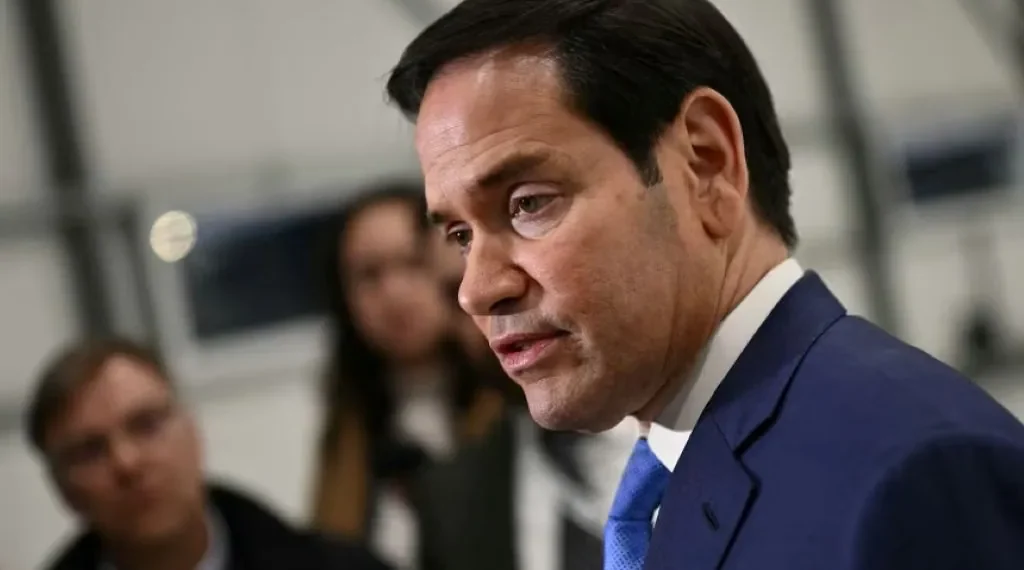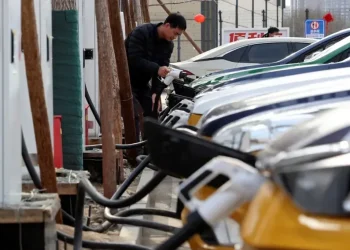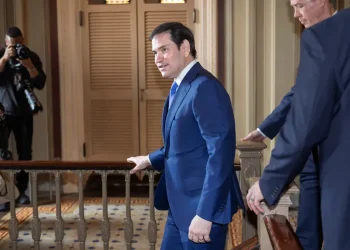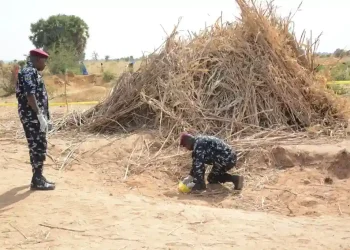U.S. Targets Venezuelan Cartel de los Soles with Foreign Terrorist Organization Designation
The United States will officially classify Cartel de los Soles as a foreign terrorist organization on November 24, Secretary of State Marco Rubio announced. The move aligns with Washington’s heightened military presence in the Caribbean and follows repeated strikes on alleged drug-trafficking operations linked to Venezuela. Officials say the designation strengthens legal tools to impose sanctions and limit the group’s international operations.
U.S. Signals Strong Measures Against Venezuelan Drug Networks
The U.S. government announced plans to designate Cartel de los Soles, an organization it alleges is led by Venezuelan President Nicolás Maduro and senior officials, as a foreign terrorist organization (FTO). The announcement, made by Secretary of State Marco Rubio, frames the cartel as responsible for both violent crimes and drug trafficking throughout the Western Hemisphere, including shipments into the United States and Europe.
The designation comes amid an expanded U.S. military posture in the Caribbean, highlighted by the recent arrival of the USS Gerald R. Ford, the world’s largest aircraft carrier. The move coincides with continued U.S. strikes against suspected narcotics shipments, including the 21st reported operation targeting a drug-laden vessel over the weekend.
Trump Comments on Potential Military Options
President Donald Trump emphasized that the FTO designation allows the U.S. military to target Venezuelan government-linked assets if needed. “It allows us to do that, but we haven’t said we’re going to do that,” he told reporters. Trump also noted ongoing discussions with President Maduro, stating only, “They would like to talk,” without elaborating on potential outcomes.
Trump suggested that congressional approval is not required for military actions inside Venezuela. “We like to keep Congress involved. … We don’t have to get their approval,” he said, emphasizing ongoing efforts to disrupt drug trafficking into the U.S.
Legal analysts have expressed caution regarding the strikes on vessels, noting that the United States has not declared war on Venezuela. While the FTO designation does not automatically authorize lethal force, it enables a broad framework for sanctions and asset targeting.
Legal and Security Implications of the FTO Designation
The FTO classification is one of the State Department’s most serious counterterrorism tools. Once designated, it is illegal for U.S. persons to knowingly provide material support to the group. Members and associates are barred from entering the United States, and assets under U.S. jurisdiction may be frozen.
Congress has seven days to review the designation after notification. If lawmakers do not intervene, the classification takes effect automatically. Rubio has previously stated that treating Cartel de los Soles as an armed terrorist organization provides the U.S. the authority to confront its operations more directly.
The Treasury Department sanctioned the cartel in July as a “Specially Designated Global Terrorist,” linking it to other groups such as Tren de Aragua and Mexico’s Sinaloa Cartel. Officials highlight that the cartel’s name references the sun insignia worn by some Venezuelan military personnel.
Ongoing U.S. Enforcement and Rewards
In August, Attorney General Pam Bondi announced a $50 million reward for information leading to the arrest of President Maduro in relation to U.S. drug charges. While the Venezuelan government has rejected allegations tying Maduro to international trafficking, U.S. authorities maintain that senior officials are implicated.
Experts note that the term “Cartel de los Soles” is largely journalistic shorthand for the involvement of government and military officials in illicit operations. Phil Gunson of the International Crisis Group said, “Cartel de los Soles, per se, doesn’t exist. It’s a journalistic expression referring to government-linked drug activity.” He added that trafficking routes through the Orinoco River and clandestine airstrips are facilitated by individuals in positions of authority.
Regional and Geopolitical Context
The FTO designation occurs amid rising U.S.-Venezuela tensions in the Caribbean. Analysts note that Washington’s expanded military presence, including carrier strike groups and aerial surveillance, signals an intensification of counterdrug and counterterrorism efforts.
Some experts caution that the approach could increase friction in the region, affecting both diplomatic relations and migration flows. The move also underscores the strategic link between U.S. foreign policy and domestic security priorities, particularly regarding narcotics interdiction.
Outlook and Next Steps
With the designation set to take effect on November 24, the United States will gain additional legal and financial tools to disrupt cartel-linked networks. Lawmakers, human rights observers, and regional governments will closely monitor the implications for Venezuelan sovereignty, U.S.-Venezuela relations, and broader regional stability.
This article was rewritten by JournosNews.com based on verified reporting from trusted sources. The content has been independently reviewed, fact-checked, and edited for accuracy, neutrality, tone, and global readability in accordance with Google News and AdSense standards.
All opinions, quotes, or statements from contributors, experts, or sourced organizations do not necessarily reflect the views of JournosNews.com. JournosNews.com maintains full editorial independence from any external funders, sponsors, or organizations.
Stay informed with JournosNews.com — your trusted source for verified global reporting and in-depth analysis. Follow us on Google News, BlueSky, and X for real-time updates.














